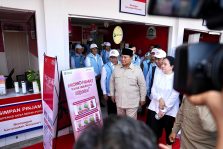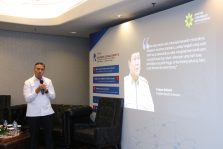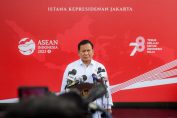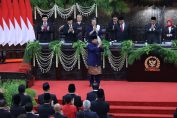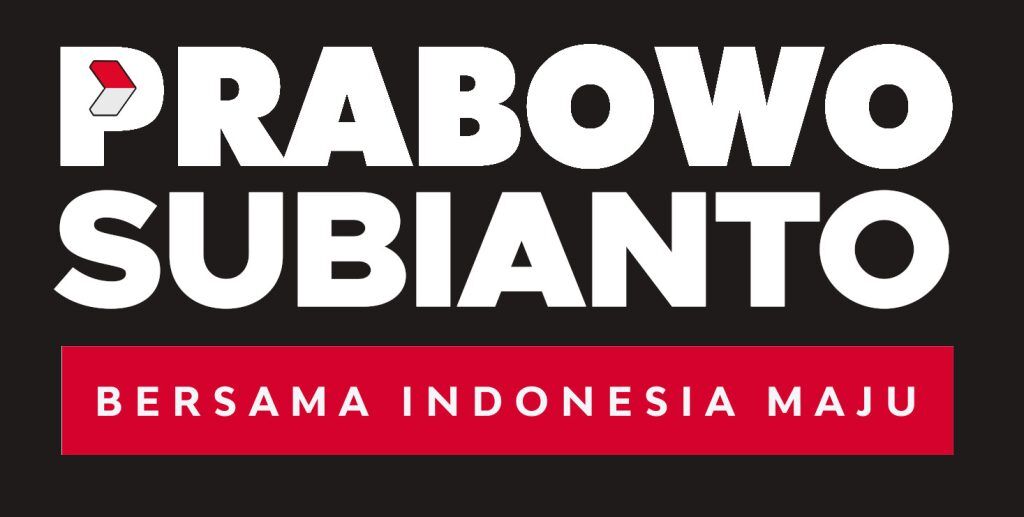The Indonesian government continues to demonstrate its strong commitment to public health through the Free Health Check Program (CKG), ensuring that every citizen’s right to healthcare is upheld. As of June 2025, 8 million Indonesians have participated in the program, which serves as a direct implementation of Articles 28H and 34 of the 1945 Constitution.
With a target of reaching 280 million citizens over five years, CKG is one of the largest health screening programs in the world. In its first year, the program aims to cover 60 million people, with a budget allocation of Rp4.7 trillion from the 2025 State Budget (APBN).
“This budget is equivalent to the funding required for vital infrastructure in developed nations. In Sweden or Finland, this amount could cover an entire year of public transportation operations,” said Senior Expert Staff of the Presidential Communication Office (PCO), Prita Laura, on Friday (June 13).
Prita highlighted that Indonesia faces a growing burden from non-communicable diseases such as diabetes, hypertension, stroke, and kidney failure, which account for more than 500,000 deaths annually. Early detection through CKG is critical in preventing costly and difficult-to-treat chronic conditions.
“CKG is designed as a birthday gift from the nation. Every citizen is entitled to a free health screening, which, if conducted privately, could cost over Rp1 million. This ensures early detection of potential health risks,” Prita explained.
Due to overwhelming public enthusiasm, the Ministry of Health has expanded CKG to accommodate community-based screenings. The program is now available to civil society organizations, state-owned enterprises, private companies, and even hobby groups.
“This is a genuine collaboration—tens of thousands of public health centers, hundreds of health agencies, the Ministry of Health, and the unified Red-and-White Cabinet all working together. Every cabinet member is actively promoting CKG,” Prita said.
Starting July 2025, the CKG School Program will be launched, aiming to provide screenings for up to 50 million students across all primary and secondary education levels.
Participation rates are highest in Central Java, East Java, and West Java, which account for 60% of total participants. According to Central Java’s Health Department, the province’s high participation rate is largely due to its synergy with the local Speling initiative—Mobile Specialist Doctors.
Launched on March 4, 2025, Speling brings specialist doctors directly to rural areas, particularly in low-income communities. Screenings are conducted at village halls, eliminating the need for residents to travel long distances to public health centers or hospitals.
Meanwhile, CKG was officially launched on February 10. In just four months, the program has reached over 8.2 million Indonesians across 9,552 health centers in 38 provinces, revealing three key health concerns: Hypertension, Diabetes Mellitus, Dental and oral health issues
Data from the Ministry of Health indicates that: One in five participants has hypertension 5.9% suffer from diabetes, half of all participants have dental and oral health problems. Additionally, central obesity is a major concern, with prevalence rates of 50% among women and 25% among men.
Health Minister Budi Gunadi Sadikin emphasized that hypertension, diabetes, and obesity are leading risk factors for heart disease and stroke—the top two causes of death in Indonesia.
However, there is a notable gender disparity in participation: 62.2% of participants are women, only 37.7% are men
Endang Sumiwi, Director-General of Primary and Community Health at the Ministry of Health, reassured that CKG is adaptive and tailored to individual health risks. All participants receive basic services, including blood pressure checks, blood sugar tests, eye exams, ear screenings, and mental health evaluations.
“The cost of treating these diseases is enormous. The total burden from non-communicable diseases exceeds Rp20 trillion per year—equivalent to the budget required to renovate 10,000 schools or revitalize more than 60 regional public hospitals in remote areas,” Prita added.
The CKG program aligns with global best practices seen in developed nations. In Japan, annual health check-ups are mandatory for employees, while the UK’s National Health Service (NHS) provides free screenings for individuals aged 40–74.
According to the World Health Organization (WHO) and World Bank, early detection costs significantly less than treating chronic diseases. CKG is a national strategic investment—saving lives, maintaining productivity, and reducing financial burdens on families and the state.
With the spirit of ONE HEALTH, HEALTH FOR ALL, the government urges citizens to take advantage of this service to lead healthier lives and witness Indonesia’s transformation into a developed nation.



